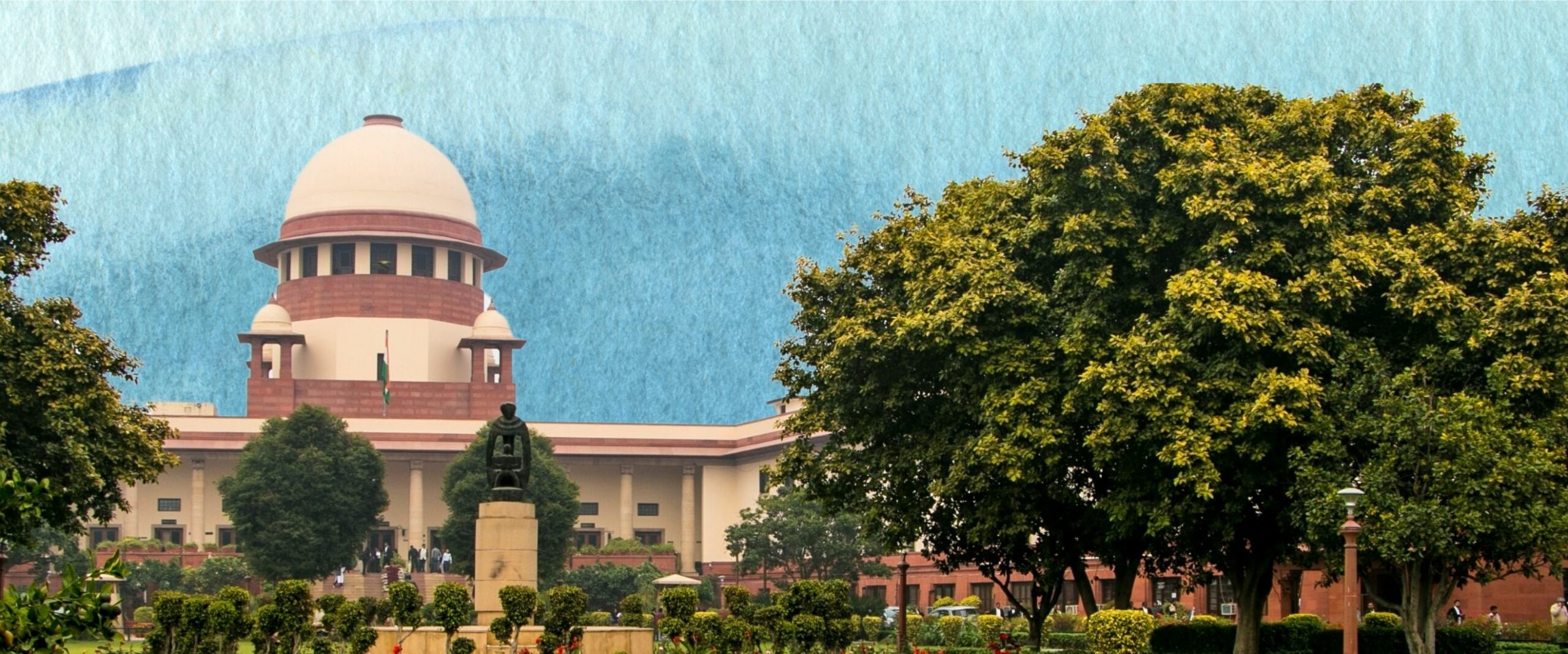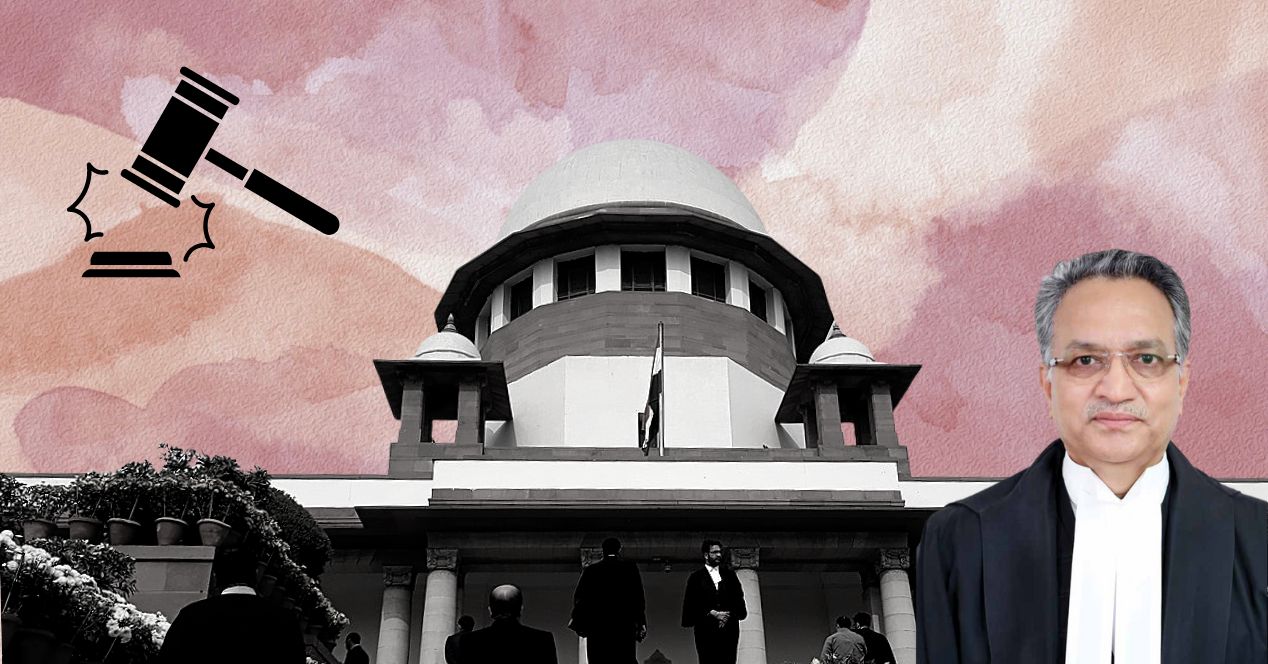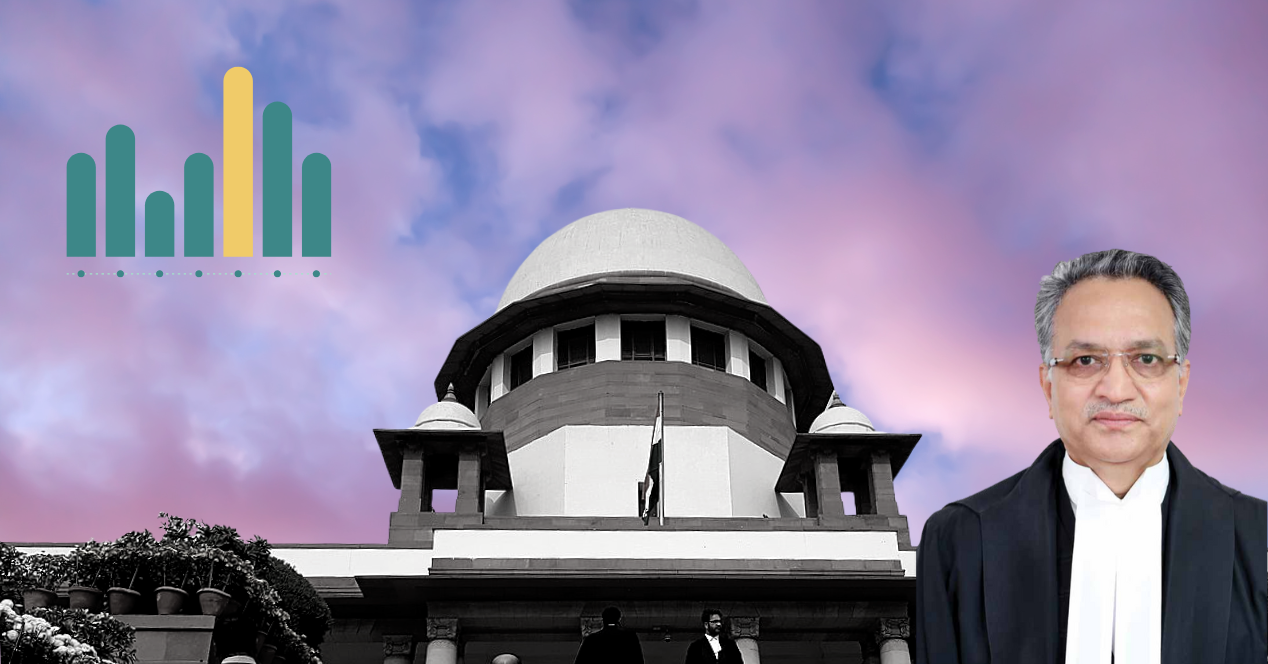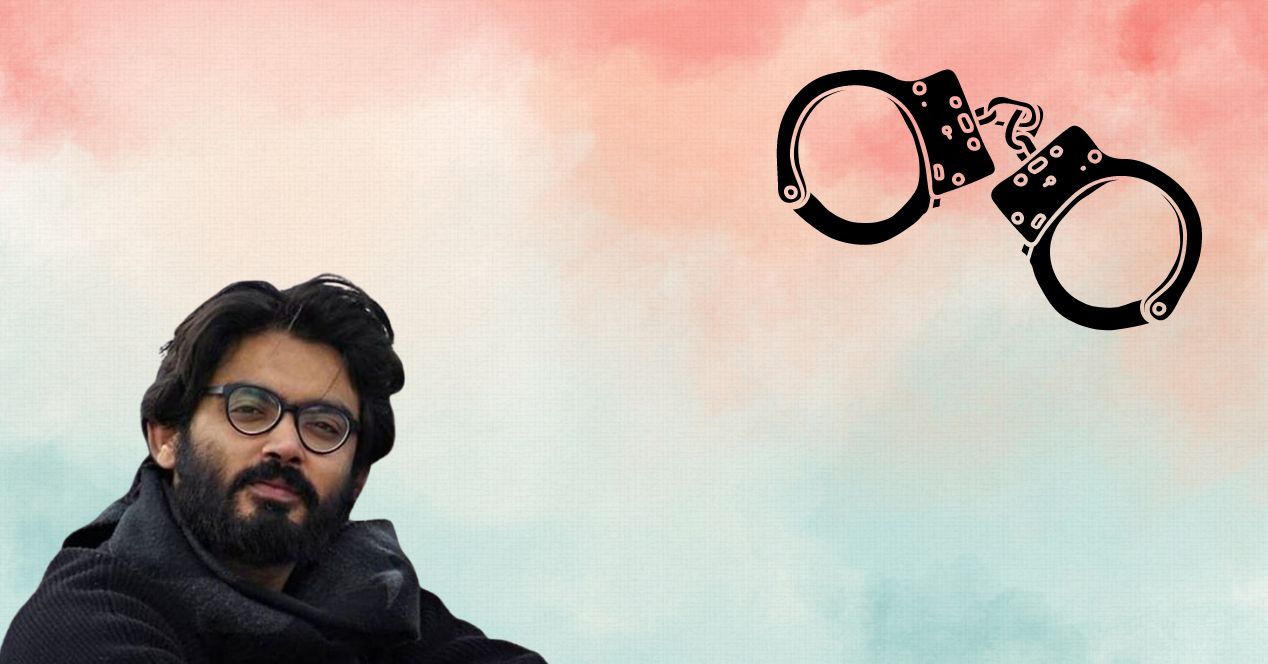Analysis
July Monthly Review
The tussle for control of the Shiv Sena in Maharashtra and Justice Khanwilkars last Judgment took center stage at the SC in July.

The Supreme Court returned to full functioning on July 11th, 2022, after a six-week summer vacation. The stage was set for significant developments at the Supreme Court in July, 2022. The crisis with the splintered Shiv Sena in the Maharashtra Assembly continued. Justice Khanwilkar retired after delivering his final Judgment at the Supreme Court, upholding the Enforcement Directorate’s wide investigative powers under the Prevention of Money Laundering Act, 2002. SCO highlights the most notable activities in the month of July.
SC Upholds Restrictive Bail Conditions and Wide Investigative Powers Under PMLA
In Vijay Madanlal Choudhary v Union of India (2022), notable Opposition leaders and businessmen challenged the restrictive conditions for bail along with the wide investigatory powers granted to the Enforcement Directorate (ED) under the Prevention of Money Laundering Act, 2002 (PMLA). In total, nearly 100 challenges were filed.
The bail provision under the PMLA, Section 45, does away with the criminal law principle of the ‘presumption of innocence’. The accused must prove that they are not guilty after a surface-level examination of the evidence, and will not commit any further offences, in order to secure bail. In addition to the act of money laundering, the PMLA punishes the ‘predicate offense’—the offence from which the illegal proceeds arose. In 2017 the SC held that this provision was unconstitutional and struck it down in Nikesh Tarachand Shah v Union of India (2017). Further, they removed the requirement for the accused to prove innocence for the ‘predicate offence’ as well.
The Union amended the provision in 2018 and removed the ‘predicate offence’ requirement. However, this reversed burden on the accused to prove their own innocence was retained. Further, the petitioners submitted that the ED was given wide and unchecked investigatory powers—they are not required to abide by checks and balances laid out for the police in the Criminal Procedure Code, 1973.
A 3-Judge Bench comprising Justices Khanwilkar, Maheshwari, and Ravikumar conducted 22 hearings between October 2021 and March 2022. On July 27th, two days before Justice Khanwilkar retired, he delivered the Judgment and upheld all the challenged provisions of the PMLA. He stated that the restrictive bail conditions, the punishment of the ‘predicate offence’, and the ED’s wide investigative powers were necessary to counter the ‘heinous’ crime of money laundering.
SC Directs the Union to Collect State-Wise Information on Hate-Speech Compliance
In January, 2022 the President of the Jamia-Ulama-i-Hind filed a petition seeking an investigation into incidents of hate speech against the Prophet Muhammad during an event at Jantar Mantar in August 2021.
On July 21st, 2022, Senior Advocate Meenakshi Arora, representing the Jamia-Ulama-i-Hind, argued that States were making little progress in applying the Court’s guidelines from Tehseen Poonawalla v Union of India (2018), Kodungallur Film Society v Union of India (2018) and Shakti Vahini v Union of India (2018). She pointed to multiple reported incidents of hate-speech continuing even after these Judgments were delivered.
An SC Bench comprising Justices Khanwilkar, Oka, and Pardiwala directed the Union Home Ministry to collect information on state-wise compliance with the Court’s directions and present it to the Court in six weeks.
Maharashtra Political Crisis: Defection or Split within the Shiv Sena?
On July 20th, a 3-Judge Bench comprising Chief Justice of India N.V. Ramana and Justice Hima Kohli, and Krishna Murari began hearing the challenge against the disqualification proceedings initiated against Maharashtra Chief Minister Eknath Shinde’s faction of the Shiv Sena. The Shinde faction argued that they had never defected from the Shiv Sena—they merely chose a different leader for themselves. Former CM Uddhav Thackeray’s faction argued that the Shinde faction’s conduct amounted to defection from the party. The Thackeray faction pointed to the Shinde faction’s disregard for the party Whip, the appointment of a new Deputy Speaker, call for a floor test, and insistence of their faction’s majority as proof of defection.
The SC directed both parties to clearly list the key issues involved in the case. The Court is now considering whether to refer the case to a Constitution Bench as there is uncertainty surrounding the application of the Tenth Schedule of the Constitution. Previously Para 3 of the Tenth Schedule stated that ‘splitting’ from the party did not amount to defection. However, the Constitution (Ninety-First) Amendment Act, 2003 repealed this provision. The Court will decide whether the Shinde faction ‘split’ from the Shiv Sena, and if they represent the ‘real’ Shiv Sena.
Bail Pleas: Mohammad Zubair and Sharjeel Imam
On July 20th, 2022, a 3-Judge Bench comprising Justices D.Y. Chandrachud, Surya Kant and A.S. Bopanna granted interim bail to AltNews co-founder Mr. Mohammad Zubair. Mr. Zubair was arrested on June 23rd, 2022 for tweets he published earlier that month. He was charged with criminal conspiracy, public nuisance, and inciting unlawful assembly. The SC stated that Mr. Zubair had been subjected to a ‘fairly sustained investigation’ and found no reason to further deprive him of his liberty.
A Delhi Sessions Court denied Mr. Sharjeel Imam’s bail application on July 23rd, 2022. Mr. Imam had cited the SC’s May 11th Order in the challenge to the constitutionality of the law on sedition, where the Court ordered a halt of all trials relating to sedition. Despite this, Additional Sessions Judge Amitabh Rawat rejected the bail plea. This raised questions about the efficacy of the SC’s Orders and Judgments in lower courts during bail proceedings.
Short Updates on the Rakesh Asthana and Agnipath Challenges
Rakesh Asthana was appointed as Director General of the Delhi Police on July 27th, 2021. The Centre for Public Interest Litigation on August 5th, 2021, challenged the appointment on August 5th, 2021, for being contrary to the Supreme Court’s decisions from 2006 and 2019, which were meant to curb political favoritism in police appointments. The matter was adjourned over 10 times since the appointment was challenged and final arguments were never heard. The case is now infructuous. Mr. Asthana completed his extended tenure on July 31st, 2022.
The Union Government announced the ‘Agnipath’ scheme for armed forces recruitment on June 14th, 2022. The scheme does not include pension benefits or a guarantee for permanent commission for new recruits. Protests led by armed forces aspirants erupted across the country shortly after the scheme was announced. Multiple petitions were filed at the SC challenging the scheme and requesting the Court to conduct an inquiry into the protests. On July 19th, 2022, a 3-Judge Bench comprising Justices Chandrachud, Kant, and Bopanna transferred all the pending petitions challenging the scheme across High Courts to the Delhi HC, stating that the HC jurisdiction must ‘not lose significance’.
Pegasus Technical Committee Submits their Report
Between December 2021 and February 2022 the Pegasus Technical Committee conducted 13 depositions, taking statements from petitioners and cyber security experts regarding the Union’s alleged illegal use of the Pegasus Spyware to spy on citizens. The SC constituted the Committee to conduct an investigation into the allegations against the Union and submit their report by May 20th, 2022. The Court granted the Committee an extension till June 20th, 2022. The report was finally submitted on August 2nd.
Through the month of July, SCO covered the key takeaways from each of the 13 depositions.
Justice A.M. Khanwilkar Retires From the SC
On July 29th, 2022, Justice Khanwilkar retired from the Supreme Court after a 6-year tenure. Justice Khanwilkar authored 226 Judgments during his tenure, a mark exceeded by only three other sitting SC Judges.
He authored a host of impactful Judgments during his tenure, including a flurry of decisions during his last few months as a sitting SC Judge. This included his Judgments upholding the challenged provisions in the Prevention of Money Laundering Act, 2002, and the Foreign Contribution (Regulation) Amendment Act, 2020. Further, he led the 3-Judge Bench which dismissed Zakia Jafri’s petition for a further investigation into her claims of a larger conspiracy behind the 2002 Gujarat Riots.




